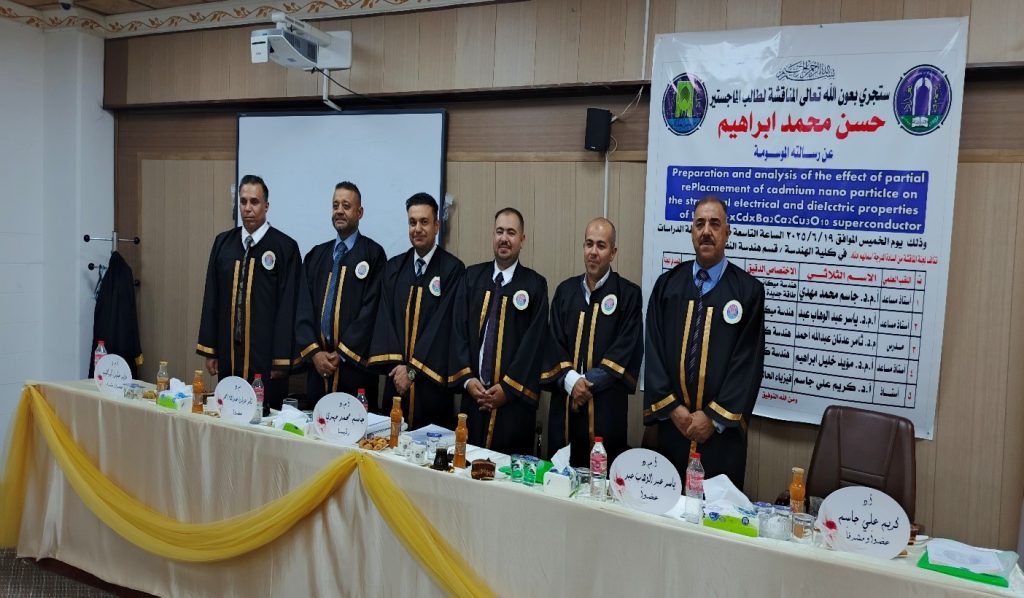The College of Engineering at the University of Baghdad held the public defense of master’s student Hassan Mohammed Ibrahim from the Department of Energy Engineering on Thursday, June 19, 2025, in the Petroleum Engineering Hall, for his thesis titled:
“Preparation and Analysis of the Effect of Partial Substitution of Cadmium Nanoparticles on the Structural, Electrical, and Dielectric Properties of the Superconductor Pb₂₋ₓCdₓBa₂Ca₂Cu₃O₁₀.”
The thesis was supervised by Asst. Prof. Dr. Moayad Khalil Ibrahim and Prof. Dr. Kareem Ali Jassim.
The study focused on examining the structural, superconducting, and dielectric properties of the compound Pb₂₋ₓCdₓBa₂Ca₂Cu₃O₁₀, synthesized via the solid-state reaction method. The primary goal was to understand the impact of cadmium substitution on the material’s characteristics.
The results indicated that cadmium improves the compound’s properties at a concentration of x = 0.1, where the highest critical temperature (Tc = 148 K) and best phase purity (82.48%) were achieved. X-ray diffraction (XRD) and Atomic Force Microscopy (AFM) analyses showed enhancements in the crystalline structure and magnetic flux pinning at this concentration. However, increasing the cadmium concentration beyond x > 0.1 led to a deterioration in properties due to lattice contraction and the formation of secondary phases.
These findings suggest that x = 0.1 is the optimal concentration to achieve a balance between crystal structure and electronic performance, offering valuable insights for designing more efficient superconducting materials.
Based on the study’s findings, the researcher made the following recommendations:
- Synthesize and test the optimal compound (x = 0.1) in larger quantities for a comprehensive evaluation of its properties.
- Explore potential applications of the compound in emerging fields such as sensors and energy storage devices.
- Assess the economic feasibility of large-scale industrial production to support the broader use of such materials in Iraq.
Following a detailed public discussion by the committee members and after evaluating the student’s defense and the quality of the research, the examining committee awarded the student a Master’s degree in Energy Engineering with a grade of “Excellent.”








